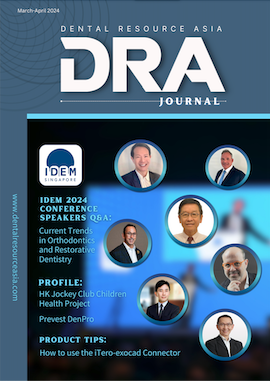A new study assessed the relationship between poor dental health and pancreatic cancer risk based on a nationwide dental health registry in Sweden.
Led by Jingru Yu, researchers from the Department of Medical Epidemiology and Biostatistics, Karolinska Institutet, Stockholm, Sweden, examined information of exposures – dental caries, root canal infection, mild inflammation, and periodontitis; the number of teeth – ascertained from the Swedish Dental Health Register, and occurrence of pancreatic cancer, identified from both cancer and cause of death registries.
Pancreatic cases expected to rise due to aging populations
They said the study results, published in the British Journal of Cancer, confirmed the association, suggesting the need for further studies on underlying mechanisms.
“Although the incidence of pancreatic cancer remains low,” the authors wrote, “the number of new cases and of deaths from pancreatic cancer are predicted to increase regionally and globally due to aging populations.”
 Click to Visit website of India's Leading Manufacturer of World Class Dental Materials, Exported to 90+ Countries.
Click to Visit website of India's Leading Manufacturer of World Class Dental Materials, Exported to 90+ Countries.
Past evidence “not always consistent”
Established risk factors, including old age, male sex, chronic pancreatitis, diabetes, obesity, tobacco smoking, and family history of pancreatic cancer, only help to explain a fraction of pancreatic cancer cases, they added.
“To date, the evidence for the link between poor dental health and pancreatic cancer risk is not always consistent, partly due to variations in study population, exposure measurement, and/or selection on adjusted confounding factors, and a lack of statistical power,” they added.
“Consequently, we aimed to quantify the association between poor dental health, in particular inflammation related oral disorders, and the risk of pancreatic cancer based on the nationwide Dental Health Register in Sweden.
“This registry provides continuous and good quality monitoring of dental health conditions of the vast majority of Swedish adult population.”
Root canal infection potential risk factor
Over 10,000 pancreatic cancers were identified during an average period of 7.2 years. In the <50 age group, a higher risk of pancreatic cancer was observed in individuals with root canal infection, mild inflammation, and periodontitis as compared with the healthy group.
In the 50–70 age group, only the subgroup with periodontitis was observed to have had an excess risk. No positive association with statistical significance was observed in the 70+ age group, while individuals with fewer teeth tended to have a higher risk in all age groups.
“In this nationwide Swedish registry-based cohort study in Sweden, we confirm that periodontitis increases the risk of pancreatic cancer by 20–56% in adults under 70 years as compared with the dentally healthy individuals,” the authors wrote.
“Our results also provide new evidence that root canal infection appears to increase the risk of pancreatic cancer, with risk in individuals younger than 50 years increased by up to 58%, similar to periodontitis. To our knowledge, this fact has not been reported previously. Similarly, individuals with fewer teeth tended to have an excess risk of pancreatic cancer.”
Read the full article: Poor dental health and risk of pancreatic cancer: a nationwide registry-based cohort study in Sweden, 2009–2016.
The information and viewpoints presented in the above news piece or article do not necessarily reflect the official stance or policy of Dental Resource Asia or the DRA Journal. While we strive to ensure the accuracy of our content, Dental Resource Asia (DRA) or DRA Journal cannot guarantee the constant correctness, comprehensiveness, or timeliness of all the information contained within this website or journal.
Please be aware that all product details, product specifications, and data on this website or journal may be modified without prior notice in order to enhance reliability, functionality, design, or for other reasons.
The content contributed by our bloggers or authors represents their personal opinions and is not intended to defame or discredit any religion, ethnic group, club, organisation, company, individual, or any entity or individual.


